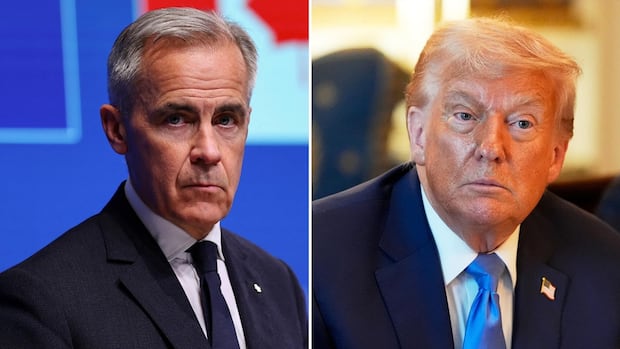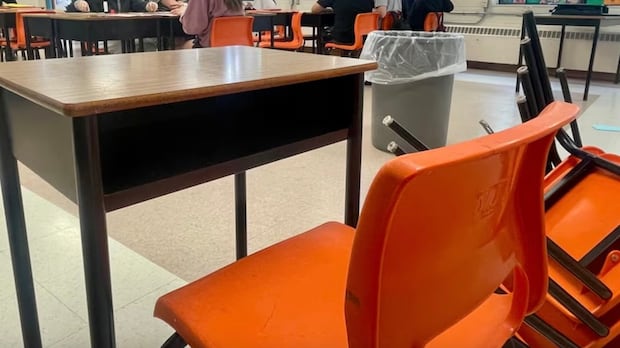Prime Minister Mark Carney spoke to his U.S. counterpart by phone Thursday — the first time the leaders have spoken since the two sides failed to reach a deal on a trade agreement earlier this month.
According to a short readout from the Prime Minister’s Office, Carney and U.S. President Donald Trump “discussed current trade challenges, opportunities and shared priorities” in what officials described as a “productive and wide-ranging conversation.”
Carney raised establishing a new economic and security relationship between Canada and the U.S., the PMO said.
The two leaders also discussed how to “build on President Trump’s leadership to support long-term peace and security for Ukraine and Europe” — an apparent reference to the U.S. effort to cobble together support from allies to help protect Ukraine from Russia through security guarantees, if those two countries can reach a peace deal.
Foreign Affairs Minister Anita Anand met U.S. Secretary of State Marco Rubio in Washington early on Thursday to discuss Ukraine.
A spokesperson for Carney said the prime minister initiated the call with Trump.
Canada and the U.S. have been locked in a trade war since Trump slapped tariffs on Canadian goods earlier this year to supposedly spur a crackdown on drugs at the border.
The border-related tariff, which Trump raised to 35 per cent at the end of July, applies to virtually all Canadian exports to the U.S. that are not compliant with the Canada-U.S.-Mexico Agreement (CUSMA). There’s also a lower rate for energy products and potash.
There is no evidence Canada is a major supplier of drugs like fentanyl. In fact, last year, Canadian officials nabbed more drugs coming from the U.S. than what the Americans captured coming in from Canada.
In addition to the border-related tariffs, Trump has levied punishing “section 232” tariffs on Canadian steel, aluminum, automobiles and copper, levies that have caused economic dislocation on both sides of the border.
On the sidelines of the G7 summit Canada hosted in Kananaskis, Alta., earlier this summer, both Carney and Trump agreed to reach some sort of trade deal by late July — it was later pushed back to Aug. 1 — but failed to come to terms on a mutually agreeable pact.
Canada-U.S. Trade Minister Dominic LeBlanc said the government wasn’t willing to accept a bad deal from the Americans.
“We have always said that we would not accept just any agreement. We would accept an agreement that was in the interests of workers in the Canadian economy. And at the end of the day, that agreement was not yet in sight,” LeBlanc said after the Aug. 1 deadline.
At the time, a White House official told CBC News a deal was not in hand because Canada “has repeatedly demonstrated a lack of seriousness in trade discussions as it relates to removing trade barriers.”
Trump has railed against Canada’s system of supply management for some agricultural products like dairy.






